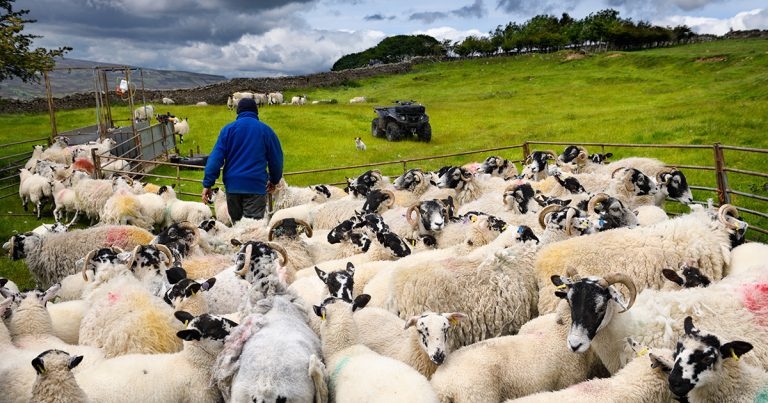10 Sept 2024
Government officials have urged vets and farmers to consider whether vaccinating their animals is the right move for them as new cases were confirmed in East Anglia and East Yorkshire.

UK farmers urged to remain vigilant for bluetongue. Image © Reimar / Adobe Stock
Vets and farmers have been urged to prepare now for the prospect of vaccinating their animals against bluetongue as case numbers increase in eastern England.
The message came as Defra announced it was permitting the use of three currently unauthorised vaccines against the BTV-3 virus strain.
Separate licences will be required to enable their deployment and officials have emphasised the jabs will not prevent animals from becoming infected with the virus.
But the latest AHDB-hosted bluetongue webinar held on 4 September, the day that the permits were issued, heard there was “good evidence” that they reduced the severity of clinical signs, as well as indications of lower mortality rates.
Gordon Hickman, Defra’s head of exotic disease control, said producers and clinicians should start to consider whether vaccination would be suitable for their herds and flocks before supplies become available.
He said: “It’s not too early to start talking to your private vet if that is something you’re interested in.”
As of yesterday (8 September), a total of 34 premises are known to have been affected by the current bluetongue outbreak since the first case was confirmed on 26 August.
Mr Hickman said it was likely that the first animal to contract the virus became infected approximately two weeks earlier than that, around 11 August.
A restricted zone, where animal movements are limited, currently covers both counties plus neighbouring Essex, while the session was told concerns about the virus had also been raised outside the restricted region but were found to be negative.
The three vaccines – Bluevac-3, Bultavo-3 and Syvazul BTV3 – will be made available in a phased rollout that will initially be focused on the five known high-risk counties – Norfolk, Suffolk, Essex, Kent and East Sussex.
The jabs can only be supplied by a vet, with a written prescription, and clinicians will be required to notify Defra of the number of doses they prescribe on a weekly basis.
But farmers will be able to administer the jabs themselves, provided that they maintain a medicine record and make it available for inspection.
However, because the vaccines are considered to be suppressive rather than preventive, movement restrictions and trade controls will still apply to vaccinated animals.
Mr Hickman highlighted the experience of clinicians and farmers in the Netherlands that are still seeing what he described as “significant clinical disease” despite around 90% of the sheep population now being vaccinated.
He said animals that receive the vaccines would continue to be regarded as unvaccinated for disease control purposes as it could not be guaranteed that they are either protected from infection or from being potentially infectious.
Although infected animals were initially culled in order to reduce the risk of further transmission, UK CVO Christine Middlemiss said there was now “no value” in continuing to do so because of the discovery of evidence suggesting the virus is now locally circulating.
But she did suggest the measure may be reconsidered in specific cases if the virus were to “jump” into an area that had previously been considered to be bluetongue-free.
That stance was confirmed within hours of the session’s conclusion when officials confirmed that a bull that had contracted the virus in East Yorkshire would be culled to minimise the risk of transmission in an area previously clear of the disease.